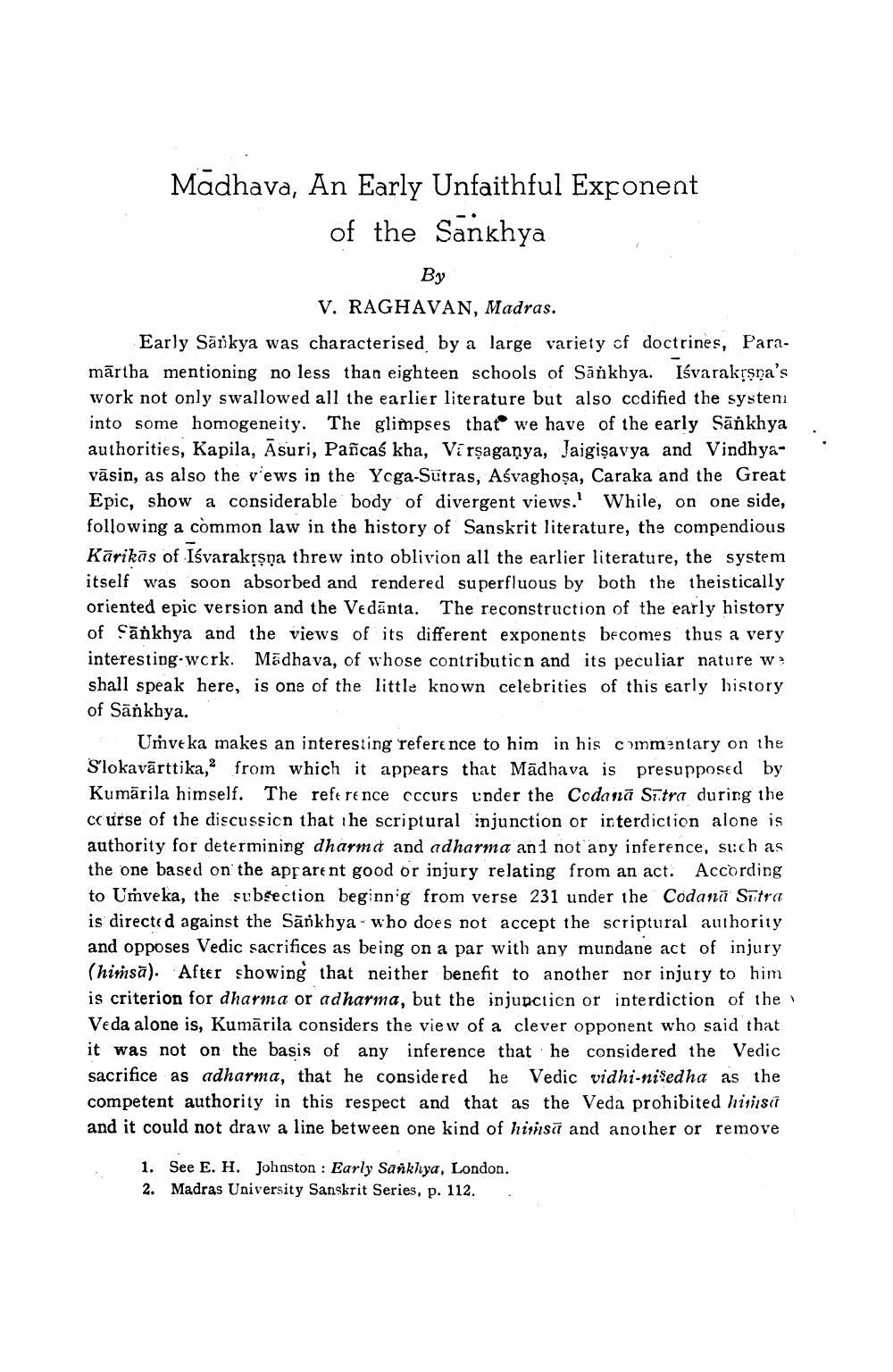Book Title: Madhava An Early Unfaithful Exponent Of The Sankhya Author(s): V Raghavan Publisher: V Raghavan View full book textPage 1
________________ Madhava, An Early Unfaithful Exponent of the Sankhya By V. RAGHAVAN, Madras. Early Sänkya was characterised by a large variety of doctrines, Paramārtha mentioning no less than eighteen schools of Sānkhya. Isvarakrspa's work not only swallowed all the earlier literature but also codified the systemi into some homogeneity. The glimpses that we have of the early Sāňkhya authorities, Kapila, Āsuri, Pancaś kha, Vi rşaganya, Jaigişavya and Vindhyavāsin, as also the views in the Yoga-Sutras, Ašvaghoşa, Caraka and the Great Epic, show a considerable body of divergent views. While, on one side, following a common law in the history of Sanskrit literature, the compendious Kārikās of Iśvarakļşņa threw into oblivion all the earlier literature, the system itself was soon absorbed and rendered superfluous by both the theistically oriented epic version and the Vedānta. The reconstruction of the early history of Sankhya and the views of its different exponents becomes thus a very interesting-wcrk. Madhava, of whose contribution and its peculiar nature w shall speak here, is one of the little known celebrities of this early history of Sānkhya. Urve ka makes an interesting reference to him in his commentary on the Slokavārttika, from which it appears that Madhava is presupposed by Kumārila himself. The reference cccurs under the Codanā Stitra during the course of the discussion that he scriptural injunction or interdiction alone is authority for determining dharma and adharma and not any inference, such as the one based on the apparent good or injury relating from an act. According to Uṁveka, the subsection beginnig from verse 231 under the Codana Sutra is directed against the Sārkhya who does not accept the scriptural authority and opposes Vedic sacrifices as being on a par with any mundane act of injury (himsā). After showing that neither benefit to another nor injury to him is criterion for dharma or adharma, but the injunction or interdiction of the Veda alone is, Kumārila considers the view of a clever opponent who said that it was not on the basis of any inference that he considered the Vedic sacrifice as adharma, that he considered he Vedic vidhi-nisedha as the competent authority in this respect and that as the Veda prohibited hissii and it could not draw a line between one kind of hisā and another or remove 1. See E. H. Johnston: Early Sankhya, London. 2. Madras University Sanskrit Series, p. 112Page Navigation
1 2 3
